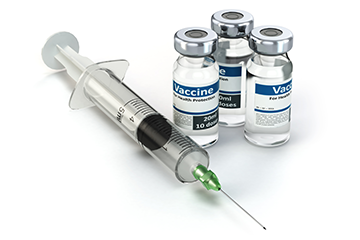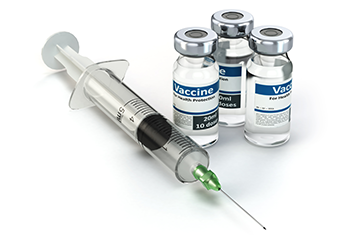
Home » 2021 Vaccine Industry Will Continue to be Dominated by COVID-19 Trials, Experts Say
2021 Vaccine Industry Will Continue to be Dominated by COVID-19 Trials, Experts Say

January 25, 2021

Trials of COVID-19 vaccines, along with research into variants of the SARS-CoV-2 virus that causes the disease, will dominate the vaccine development space through 2022, with some nonCOVID vaccine trials slowly trickling back after being delayed by the pandemic.
COVID-19 research will still be around for at least the next two years, predicts Angela Branche, assistant professor at the University of Rochester Medical Center. In addition to studying COVID variants as they crop up and developing new vaccination approaches — such as Moderna’s current third “booster shot” trial — scores of postmarket studies will be needed.
In the meantime, vaccine makers have their hands full. There are more than 60 COVID-19 vaccine candidates in clinical trials and more than 85 in preclinical development. Another 260 vaccines are in the works, although many are delayed while COVID-19 remains such a high priority, say trial professionals. Those include vaccine candidates for respiratory syncytial virus (RSV), influenza, pneumococcal, Norovirus, Group B strep, MRSA, HIV and tick-borne diseases.
“I don’t know if there have ever been so many vaccines being developed at the same time for the same disease,” said Chris Doyle, director of Institutional Biosafety Committee Services for WCG IRB. “It’s crazy.”
Sponsors are also starting to test their vaccine candidates’ efficacy and safety in pediatric populations as well as in pregnant women. Building on the success of its mRNA vaccine in adults, Pfizer says it has been enrolling participants as young as age 12 in its phase 3 trial. Results are due later this year. And the drugmaker also has undertaken reproductive and developmental toxicity studies to determine the vaccine’s effect on the maternal population. It is not yet known when pregnant women may be able to start receiving the COVID vaccines.
Then there are the mutations in the virus. “It’s just a matter of time before that requires a change in the vaccines,” says Cynthia Dukes, vaccine industry veteran and chief business officer of Benchmark Research, a Texas-based network of clinical research sites. “If a whole new vaccine is needed, new studies will be needed,” says Dukes, adding that Benchmark tripled its staff in 2020 to keep up with demand.
Doyle warned, though, that COVID-19 vaccine candidates coming into human trials after Pfizer’s and Moderna’s vaccines have already become available may find recruiting tricky. “Who’s going to sign up to possibly get a placebo when you could — at some point in the near future — go to CVS and get a vaccine that you know works? It’s going to be a tough sell,” he said.
“Excitement and funding will drive a surge in mRNA vaccine research over the next several years, particularly in the infectious disease and cancer fields,” said Doyle. “They’re simple, adaptable, scalable, safe and can clearly be effective.”
Unfortunately, in their first wave, mRNA vaccines have been tough to handle. Researchers working on an expected second wave of mRNA-based vaccines for various ailments can now spend more time in phase 2 trials altering the antigens so they don’t need to be kept so cold, which has been a logistical challenge for the deployment of Pfizer’s and Moderna’s vaccines.
“They are very fragile vaccines,” said Dukes. “Researchers should be able to now find a way to optimize the vaccine so they can be stored, distributed and given more easily. Typically, we spend more time in phase 2 figuring out how to optimize a vaccine or improve its stability by tweaking the formulation, adjusting the manufacturing process. With COVID, we didn’t have the luxury to take all that time fine-tuning.”
Regardless, the success of the mRNA technology will ripple throughout the vaccine industry, experts say. Dukes said that vaccines that teams had been working on for many years are beginning to restart their trials after COVID-19 knocked most regular research off-track, and researchers may be able to take advantage of the new technologies now infusing the space. The suspended trials include vaccines to ward against strep A and soft-tissue infections.
The huge focus COVID-19 vaccine development got this year also brought needed attention to other vaccines in development, said Andy Lee, senior vice president and head of global clinical trial operations at Merck Research Labs. Those include Zika, Dengue, cytomegalovirus, RSV, porcine circovirus and Chikungunya.
The FDA announced in January that it would conduct accelerated review of Merck’s 15-strain flu shot with a target action date of July 18. The European Medicines Agency is also reviewing the application for the candidate.
But vaccines for infectious diseases that aren’t COVID may have a tough time recruiting in this season — and not just because there are so many COVID-19 vaccines to study. Said Dukes, “There had been a number of RSV and influenza trials, but because of social distancing and masking, we’re not seeing much disease.”
Related Directories
Upcoming Events
-
07May
-
14May




